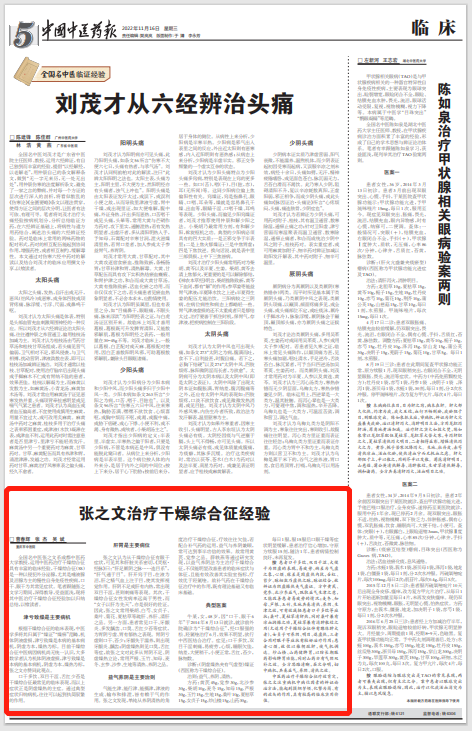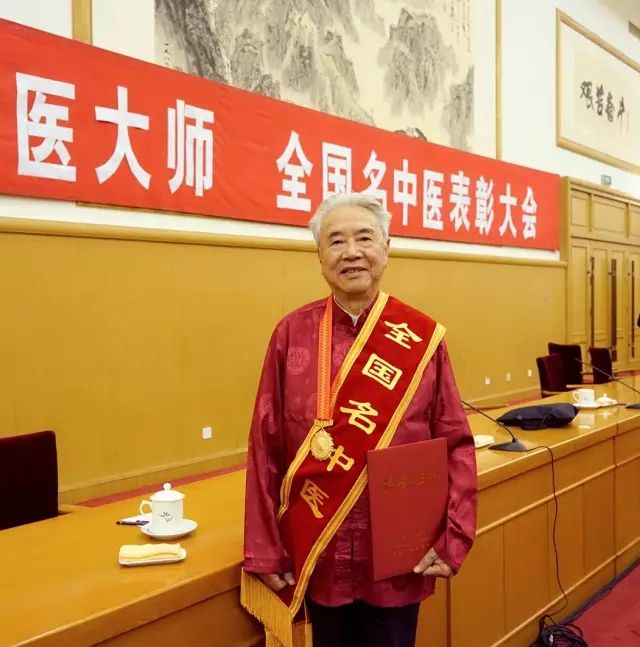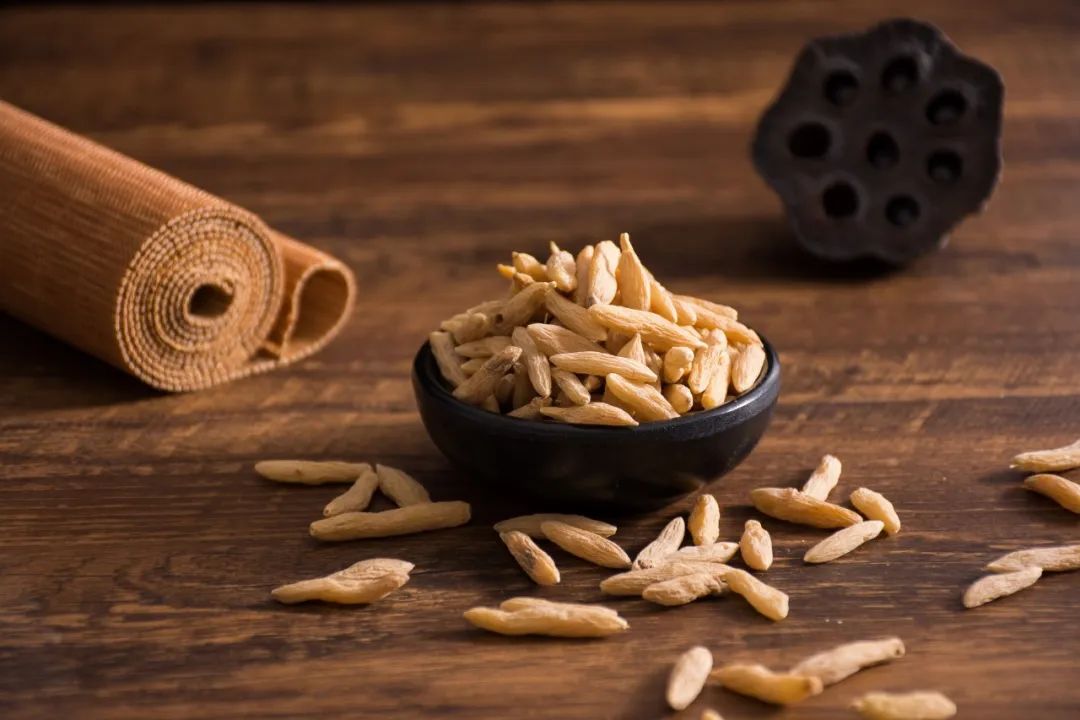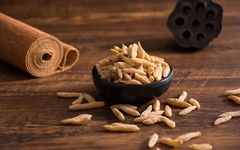

▲Zhang Zhiwen, National Renowned TCM Practitioner (1937.2-)
Zhang Zhiwen, a national renowned TCM practitioner, professor at Chengdu University of Traditional Chinese Medicine, has rich clinical experience in treating Sjögren’s syndrome with TCM. Sjögren’s syndrome is a chronic autoimmune disease primarily affecting exocrine glands, especially the salivary and lacrimal glands, with dry mouth and dry eyes as common symptoms. Here, we present Professor Zhang Zhiwen’s experience in treating Sjögren’s syndrome for the benefit of colleagues.
Deficiency of Body Fluids Leading to Dryness is the Main Pathogenesis
According to the clinical manifestations of Sjögren’s syndrome, TCM often categorizes it under the “Dryness Syndrome” or “Dry Bi”. The fundamental pathogenesis of this condition is the deficiency of yin fluids, leading to dryness, with yin deficiency as the root and dryness-heat as the manifestation. Currently, there is no unified understanding of the etiology and pathogenesis of Sjögren’s syndrome in TCM, but most scholars believe that the deficiency of yin fluids leading to dryness is the basic pathogenesis, with yin deficiency as the root and dryness-heat as the manifestation, a view that Zhang Zhiwen also supports.
Common clinical manifestations of Sjögren’s syndrome include dry mouth, increased thirst, dry and gritty eyes, red tongue with little coating, which are typical symptoms of yin deficiency with dryness-heat. Summarizing the pathogenesis through typical symptoms often helps simplify complex issues.
The Liver and Stomach are the Main Affected Organs
Zhang Zhiwen believes that the dry eye symptoms associated with Sjögren’s syndrome indicate a close relationship with the liver. The “Lingshu: Meridians” states: “The liver channel connects to the eyes… the liver qi communicates with the eyes.” The liver opens to the eyes, and its essence, qi, and blood nourish the eyes, enabling their visual function. Insufficient liver yin or internal heat in the liver often leads to dry and gritty eyes, and even pain. Furthermore, the incidence of Sjögren’s syndrome is significantly higher in women, which supports the notion that “women rely on the liver for their constitution.” Therefore, Zhang Zhiwen often uses herbs such as Chai Hu (Bupleurum), Bai Shao (White Peony), Nu Zhen Zi (Ligustrum), Sang Ye (Mulberry Leaf), Ju Hua (Chrysanthemum), and Xia Ku Cao (Selfheal) to soothe the liver, nourish the liver, and clear liver heat. On the other hand, patients often present with dry mouth, gingivitis, multiple cavities, halitosis, red tongue with little coating, indicating deficiency of stomach yin and accumulation of heat in the stomach. Stomach yin deficiency leads to dry mouth and little coating; lack of nourishment to the gums results in gingivitis and cavities; yin deficiency with dryness-heat leads to halitosis and a red tongue. Therefore, Zhang Zhiwen often addresses this with herbs that clear heat and nourish yin, such as Lu Gen (Reed Rhizome), Yu Zhu (Polygonatum), Zhi Mu (Anemarrhena), Mai Dong (Ophiopogon), Xuan Shen (Scrophularia), Sha Shen (Glehnia), and Sheng Di (Rehmannia).

▲Mai Dong (Ophiopogon)
Tonifying Qi and Nourishing Yin is the Main Treatment Principle
Qi is essential for generating, transporting, and regulating body fluids. Zhang Zhiwen found that treating Sjögren’s syndrome solely from the perspective of nourishing yin and clearing heat often yields unsatisfactory results. However, when combined with the use of qi-tonifying herbs, the dual approach of tonifying qi and nourishing yin often achieves better results. Therefore, he frequently uses Huang Qi (Astragalus) and Dang Shen (Codonopsis). Research by Xue Yiyan et al. has shown that using a qi-tonifying and yin-nourishing approach to treat Sjögren’s syndrome not only significantly improves patients’ clinical symptoms and signs but also effectively enhances laboratory indicators, with efficacy superior to hydroxychloroquine. Thus, the role of qi-tonifying herbs in the treatment of Sjögren’s syndrome is supported by both theoretical and clinical foundations.
Typical Medical Case
A 48-year-old female patient, referred to as Niu, presented with “dry mouth and dry eyes for 6 years” on August 13, 2014. Prior to this, she was diagnosed with “Sjögren’s syndrome” at another hospital and had been treated with prednisone and hydroxychloroquine for 6 months with little effect, seeking integrated TCM and Western medicine treatment. Symptoms included: dry mouth with increased thirst, dry and gritty eyes, easy fatigue, irritability, poor sleep, poor appetite, slightly dry stools, normal urination, red tongue, little coating, and thin rapid pulse.
Diagnosis: (Yin deficiency with dryness-heat combined with qi deficiency type) Dryness Syndrome (referred to as Sjögren’s syndrome in Western medicine).
Treatment Principle: Tonify qi, nourish yin, and clear heat.
Prescription: Huang Qi 45g, Dang Shen 30g, Bei Sha Shen (North Glehnia) 30g, Chai Hu 10g, Mai Dong 15g, Zhi Mu 15g, Lu Gen 30g, Yu Zhu 15g, Sheng Di 15g, Sang Ye 10g, Xia Ku Cao 15g, Nu Zhen Zi 15g, Chao Shan Zha (Fried Hawthorn) 15g, Shan Yao (Chinese Yam) 30g.
Take once daily. After 15 doses, symptoms such as dry mouth and dry eyes were significantly relieved, increasing the patient’s confidence in treatment. The original prescription was continued for another 15 doses, and after one year of follow-up, the patient’s condition was well controlled, with no recurrence.
Analysis: The patient’s symptoms of dry mouth with increased thirst, dry and gritty eyes, and dry stools indicate yin deficiency, while easy fatigue and poor appetite suggest qi deficiency. Irritability and poor sleep are due to internal heat disturbance from deficiency, and the red tongue with little coating and thin rapid pulse indicate deficiency heat. Therefore, the diagnosis is yin deficiency with dryness-heat combined with qi deficiency. In the prescription, Huang Qi and Dang Shen tonify qi, aiming to generate fluids and improve the patient’s fatigue; Mai Dong, Zhi Mu, Lu Gen, Yu Zhu, and Sheng Di work together to clear heat, nourish yin, and generate fluids, effectively alleviating symptoms of dry mouth and increased thirst; Sang Ye and Xia Ku Cao clear liver heat, with Sang Ye also having the effect of cooling blood and moistening dryness, while Xia Ku Cao helps reduce swelling and dissipate nodules (especially suitable for Sjögren’s syndrome with glandular enlargement). Nu Zhen Zi nourishes yin, brightens the eyes, and reduces deficiency heat, and the combination of these three herbs has a good therapeutic effect on dry eye symptoms. The patient experienced irritability, so Chai Hu was added to soothe the liver and regulate qi. Chao Shan Zha and Shan Yao strengthen the spleen and stomach to prevent long-term medication from affecting spleen and stomach function, while Shan Yao also has the effect of tonifying both qi and yin. The entire prescription is clear in thought, well-structured, and directly addresses the pathogenesis, achieving the effects of tonifying qi, nourishing yin, and clearing heat.
TCM treatment for Sjögren’s syndrome has proven effective. Zhang Zhiwen emphasizes the differentiation of syndromes based on the affected organs, which can simplify complex issues and provide targeted treatment, demonstrating high clinical practical value.
Important Statement:
Due to individual differences in constitution and condition, the herbs and dosages in this case are only applicable to the patient at that time. Without proper TCM diagnosis and treatment, do not replicate the prescription and dosages from this case. Readers in need should seek treatment at a legitimate hospital to avoid delaying their condition.■
【Source: China Traditional Chinese Medicine News, content selected from “China Traditional Chinese Medicine News” November 16, 2022, Fifth Edition, Cao Chunhui, Zhang Jie, Wu Bin, Chongqing Traditional Chinese Medicine Hospital】Recommended Reading





